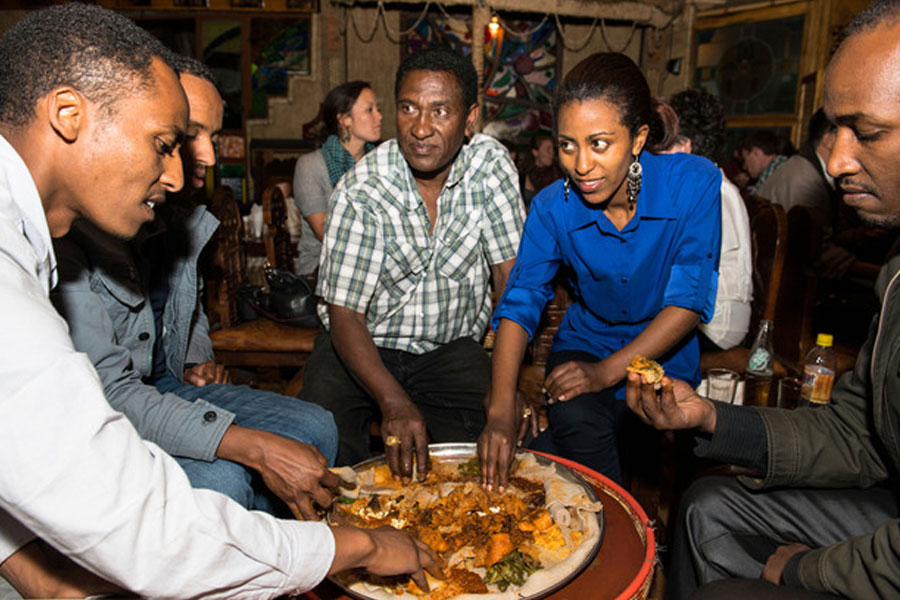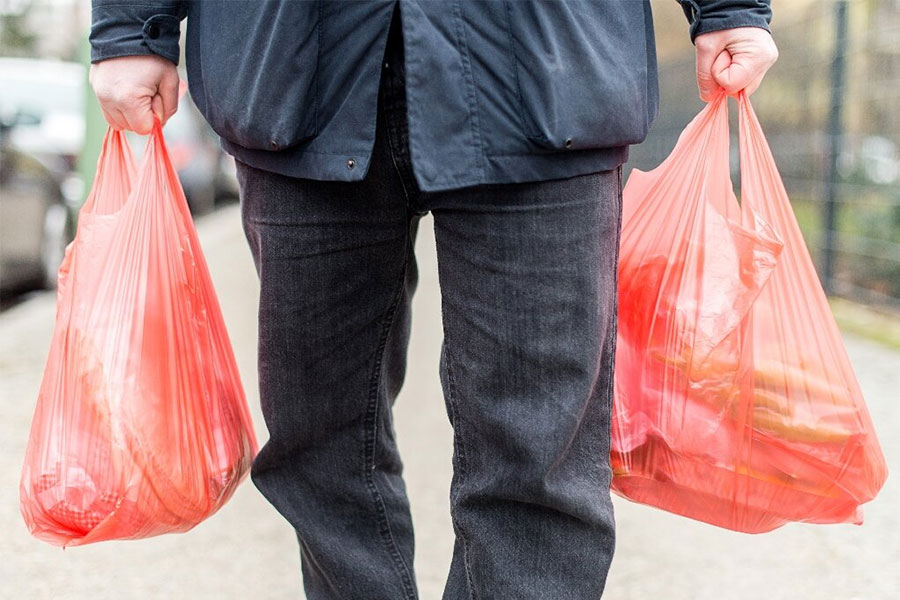
Viewpoints | Sep 10,2023
The Qera neighbourhood was in its familiar heavy air with the scent of freshly slaughtered cattle. The chaos from the holiday buzz puts a valuable commodity overlooked – the hides and skins of sheep and goats, which form a crucial part of a global industry worth over 400 billion dollars. Indifferent primarily to the potential of these skins, traders sell them to intermediaries who supply tanneries. A seasoned sheep trader notes that while the market sees occasional surges, particularly during holidays, the quality of the skins often fails to meet the high standards of discerning tanneries, 15 of them in the nearby town of Modjo. The livestock industry is marred by traditional, often harsh, practices such as constant slashing and branding, leading to scars and blemishes on the hides. The lack of proper post-slaughter preservation and inadequate transportation further deteriorate the quality of the skin. Particularly evident during the recent Christmas holiday, when large numbers of livestock were slaughtered, the quality and pricing of the hides remained disappointingly low.
The declining quality of hides and skins is a notable concern for the industry, as tanneries struggle to source decent hides. Colba Tannery, once a leading player in the industry, faces a dwindling supply chain, worsened by a shortage of chemicals and poor-quality inputs. Experts blame regulatory setbacks and weak coordination for these problems. Skins often reach tanneries days after slaughter without preservatives, undermining the quality. The leather industry has seen a steady decline in exports, with products accounting for a mere 0.8pc of the country's total merchandise exports in 2021/22. A study identifies low technology utilisation and unreliable supply of raw materials as critical issues. The authorities have attempted to address these problems over the years, with various regulatory bodies established under different regimes. The incumbent administration has launched the 'Ethiopia Tamirt' - let Ethiopia produce - an initiative its officials hope boosts the domestic leather industry as part of the import substitution strategy.
However, the problems extend beyond supply chain issues. Market incentives for raw animal skins have stagnated, with prices remaining unchanged for almost 15 years. The absence of incentives has led to declining skin quality, as household slaughters lack proper preservation practices. Some producers are taking matters into their own hands by establishing their tanneries to ensure a steady supply of quality materials. Experts warn of a global shift towards synthetic leather driven by environmental and affordability concerns. They urge policymakers to adapt to these changing market dynamics and technological advancements, stressing the need for a supply chain reorientation and significant technological investment. SEE THE FULL STORY ON PAGE 2.
You can read the full story here
PUBLISHED ON
Jan 13,2024 [ VOL
24 , NO
1237]

Viewpoints | Sep 10,2023

Radar | Aug 17,2025

View From Arada | Jun 21,2025

View From Arada | Feb 10,2024

Fortune News | Jan 03,2025

Fortune News | Jul 17,2022

Radar | Oct 27,2024

Fortune News | Jul 07,2024

Radar | Jun 07,2025

Fortune News | Oct 27,2025

Dec 22 , 2024 . By TIZITA SHEWAFERAW
Charged with transforming colossal state-owned enterprises into modern and competitiv...

Aug 18 , 2024 . By AKSAH ITALO
Although predictable Yonas Zerihun's job in the ride-hailing service is not immune to...

Jul 28 , 2024 . By TIZITA SHEWAFERAW
Unhabitual, perhaps too many, Samuel Gebreyohannes, 38, used to occasionally enjoy a couple of beers at breakfast. However, he recently swit...

Jul 13 , 2024 . By AKSAH ITALO
Investors who rely on tractors, trucks, and field vehicles for commuting, transporting commodities, and f...

Oct 25 , 2025
The regulatory machinery is on overdrive. In only two years, no fewer than 35 new pro...

Oct 18 , 2025
The political establishment, notably the ruling party and its top brass, has become p...

Oct 11 , 2025
Ladislas Farago, a roving Associated Press (AP) correspondent, arrived in Ethiopia in...

Oct 4 , 2025
Eyob Tekalegn (PhD) had been in the Governor's chair for only weeks when, on Septembe...